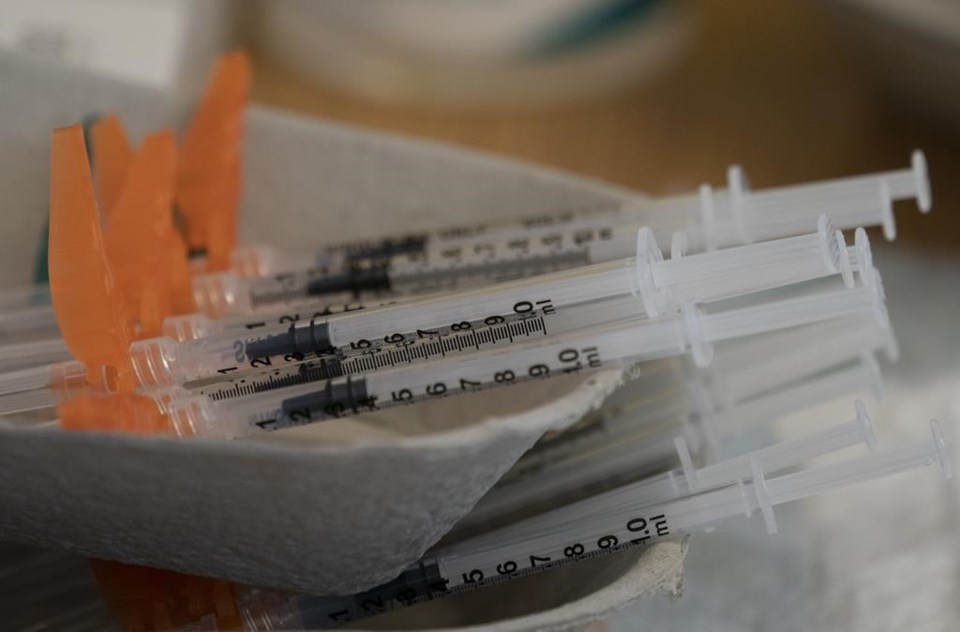HAMILTON — A team of researchers from McMaster University has mapped out how certain COVID-19 vaccines can trigger a rare but sometimes fatal blood clotting reaction in some recipients.
The findings, published Wednesday in the peer-reviewed scientific journal Nature, suggest some people formed unusual antibodies after receiving an adenoviral vector vaccine, and those antibodies could stick to certain blood platelet components, triggering clot formation.
COVID-19 vaccines from Oxford-AstraZeneca and Johnson & Johnson, which both use adenoviral vector technology, are associated with rare cases of vaccine-induced immune thrombotic thrombocytopenia or VITT, a clotting disorder characterized by low blood platelets.
"We do not know why these rare antibodies form in the first place, and we do not know why they cause blood clots in unusual places, but we do know the specific target of the VITT antibody," McMaster researchers said in the study.
Ishac Nazy, the principal investigator and corresponding author, said some people formed VITT antibodies after being vaccinated with the adenoviral vaccines. Those unusual antibodies then bound to a platelet protein in the blood called platelet factor 4 (PF4) "in a very unique and specific orientation."
The antibodies cluster PF4 proteins together to form immune complexes, which bind and activate platelets and leads to "a self-perpetuating vicious cycle of clotting events," Nazy said in a release.
The research team used a molecular mapping technique to study the interaction between the VITT antibodies and the PF4 protein, finding the precise location on the PF4 where the VITT antibodies bound.
The study also compared blood samples from five VITT patients to 10 with a similar clotting condition known as heparin-induced thrombocytopenia, or HIT, and found patterns of platelet activation that were distinct from the HIT patient samples. That indicates the tests used to diagnose HIT aren't suitable to diagnose VITT, the study said.
The study also found that VITT antibodies could bind "very tightly to PF4, more tightly than HIT antibodies."
Nazy, who's also the scientific director of the McMaster Platelet Immunology Laboratory, says he hopes the findings can make it easier to diagnose and treat VITT, as well as make vaccines safer.
John Kelton, co-investigator of the study and co-medical director of the McMaster Platelet Immunology Laboratory, said the next step is to "develop a rapid diagnostic and accurate test to diagnose VITT." The researchers say current rapid tests are time-consuming and prone to false-negative results.
"Our major interest is now to move upstream from how the clots happen to preventing them from occurring," he said in a release.
VITT was found to occur in one in 60,000 AstraZeneca recipients in Canada.
Canada's National Advisory Committee on Immunization recommended last month that provinces stop administering the AstraZeneca vaccine in most cases, adding that it preferred those who received first doses of AstraZeneca get an mRNA vaccine from either Pfizer-BioNTech or Moderna to complete their two-dose series.
In June, the estimated rate of developing VITT after a second dose was one in 600,000.
This report by The Canadian Press was first published July 7, 2021.
The Canadian Press

